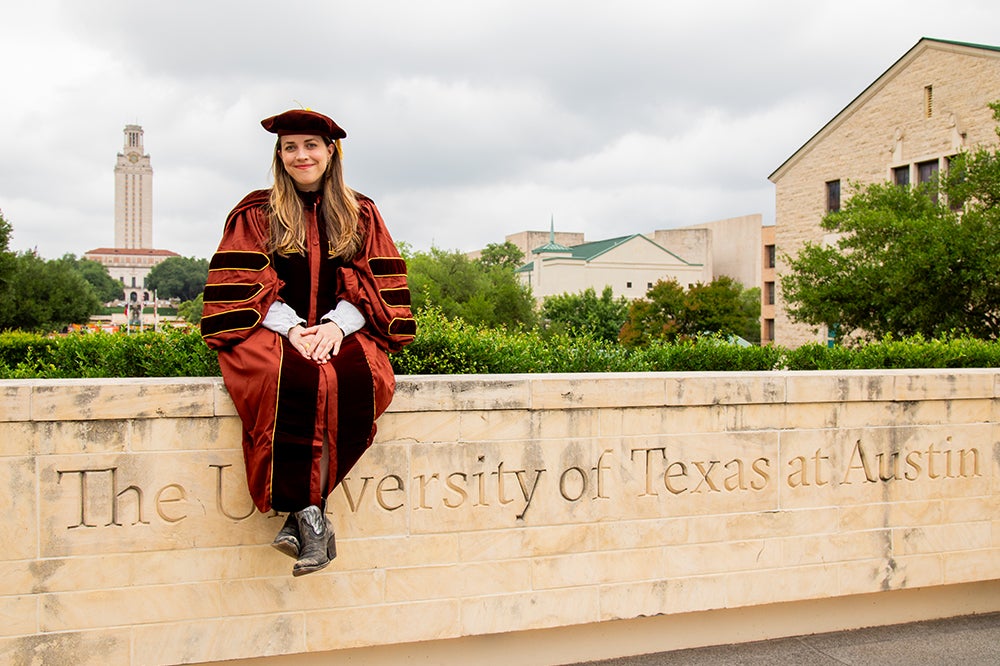
Bethany Hamilton Bhat, Ph.D. ’25, Educational Psychology.
Why did you choose to specialize in quantitative methods at the College of Education?
I went to UT Austin for my undergraduate degree and was in the Plan II Honors program in the College of Liberal Arts. After that, I worked as a lab manager in the cognitive neuroscience area of the psychology department.
While I was there, I became very interested in behavioral statistics and I started taking classes in different departments across UT Austin. I am currently in the quantitative methods area of educational psychology because I took a class called metanalysis, which is the area I currently research, with Professor Tasha Beretvas.
I was already looking at different graduate schools, but I really liked the research she was doing, and she convinced me to apply to the program, so that is how I got here.
What memories or experiences stand out from your time at COE?

I have two advisors who have really supported my career. My main advisor is Tasha Beretvas, who has consistently been there for me and holds high standards for herself, which has been a strong model for how I apply myself. I have been a TA with her for a long time, and that exposed me to a wide range of research methodologies and analysis types, which has sharpened me as a researcher.
My other advisor, James Pustejovsky, used to be at UT but he is still my advisor. I feel very lucky that I got to work with two different people in the same area because they have different perspectives, which created a great environment for me to develop a broader understanding of various approaches to improving my research.
I also appreciate the broad coursework we have had to take, as it has truly prepared me as a meta-analyst in what I do.
How does your current path compare to what you envisioned when you started at the College of Education at UT Austin?
Before my graduate studies, I didn’t have as many statistics courses, and that wasn’t really my background. I was focused more on cognitive neuroscience and psychology. I became very interested in behavioral statistics while I was in school and working, but I didn’t fully understand the research before I got into the program.
I didn’t quite comprehend how they were not primarily analyzing other people’s data, but rather developing and comparing methods, identifying methodological problems in research and figuring out how to solve them. Once I became more exposed to the research and learned through my mentors, it really changed my perspective on what we do, how useful it is and how to apply it.
How have you grown and overcome challenges since you began your Ph.D. at UT Austin?
Life things have happened – COVID-19 happened, and I had a baby. I think, personally, I have gotten better at balancing life and research, but I’ve also have had very understanding mentors throughout this process, which has helped a lot.
We had unique experiences because of COVID. Most of us had remote learning for quite some time not long after I joined the program, and I felt isolated socially. When I first started the program, we worked together on campus, and I learned a lot from that experience. When it shifted to working from home, it became a lot more challenging.
I made sure to strengthen my network and try to connect with people, because it is important in research – you learn from other people and their experiences. I learned I had to make an extra effort to put myself out there to get to know other people and what they were working on.
How do you hope to change the world?
I am committed to helping others create strong, reliable research. I hope to teach people and inspire them to care about methods, to care about the rigor of their study designs and their analysis, and to set a good example myself – to continue learning and pushing myself as a researcher.
So much of our collective knowledge in science depends on how good the methods are and how well they are applied.

